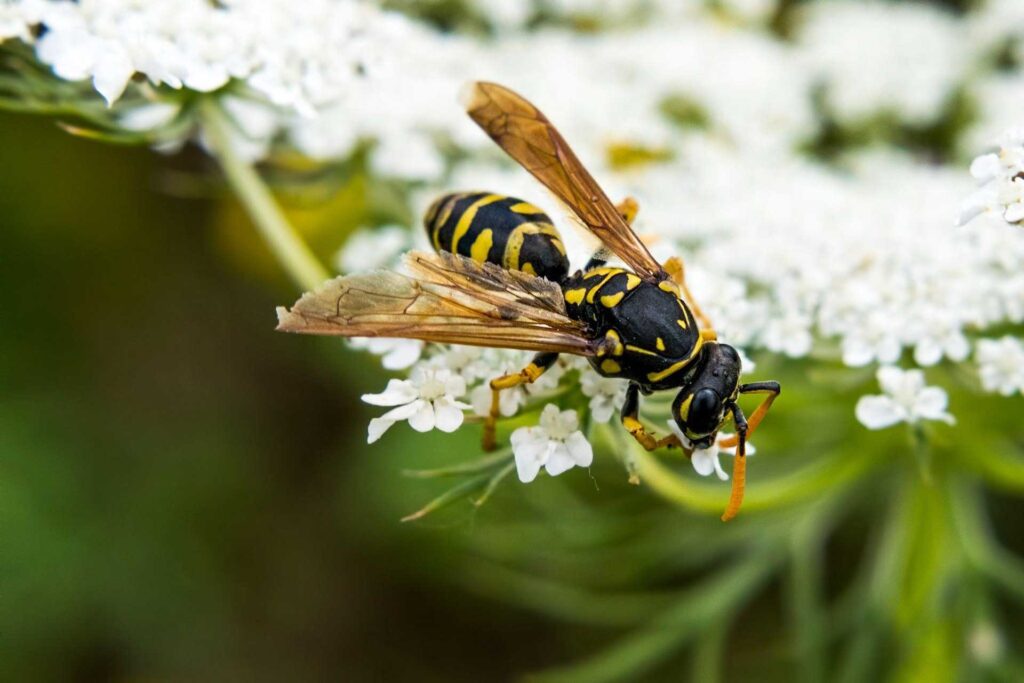Much sleeker and sharper (literally) than a honeybee, wasps are a terror for children, pets, and anyone foolish enough to try wasp nest removal without the proper tools or protection. Their sting is quite painful, and when their nest is threatened, they can attack in a swarm in defense.
Naturally, the location they choose to create their nests is in dark confined spaces where they can safely raise their eggs out of sight. Hosing their nests down with a water hose may seem like an effective wasp nest removal strategy, but it does not get rid of the eggs that are still inside the nest. And this is to say nothing of the vengeful wasps that are experts at identifying threats. If your property suffers from an influx of wasps, turn to Nature’s Gate for effective wasp control services!

Yellowjackets, hornets, and paper wasps are all common types of wasps found in the warm and sunny climate of St. George. Paper wasps are the typical wasps you imagine when you hear the word wasp. Hornets are a larger variety of wasp that can build nests in high areas and under the ground. Yellowjackets can often be mistaken for honeybees because of their coloring, but make no mistake, yellowjackets are distinctly wasps.
Each of these wasp types is social, meaning that they live together in nests as a colony. Depending on the species, colonies vary in size. Paper wasp colonies average less than 100 adults, while hornet colonies may have up to 1000 adults. However, yellowjackets can create massive nests that house colonies of 1000–3000 on average but can hold as many as 100,000.
Your first instinct will be to hose wasps down or purchase an insect killer spray to wipe them out. Even with the strong formulas designed to take care of them, some species of wasps are very tough. The improper application of these sprays will not kill the hive or the wasps effectively.
Wasps become the most dangerous when their nest is threatened. Contrary to popular belief, wasp nest removal isn’t a necessity because wasps never reuse a nest. The proper way to get rid of wasps is to treat the nest and ensure the larva inside are eliminated.
The most susceptible to the danger of wasps are pets and children that come too near to a nest and provoke an attack. This is especially life-threatening if your child has an allergy to wasp stings. Another note to remember: wasps are not honeybees and do not lose their stingers when they sting a person or animal. They can, in fact, sting multiple times if provoked.
As a general rule, it’s always easier to prevent animal and insect infestations than it is to address one that already exists. Wasps can build nests wherever they have adequate food and shelter to survive. Removing access to those two resources as much as you can will lessen the chances of a wasp colony forming. To keep wasps away from your home, try the following steps:
Wasps are very common insects, with more than 100,000 different species around the world, and a wasp infestation could still occur within your home even if you do everything on this list. If you spot wasps flying around where you live or eat, it’s important to take quick action in getting wasp control near you.